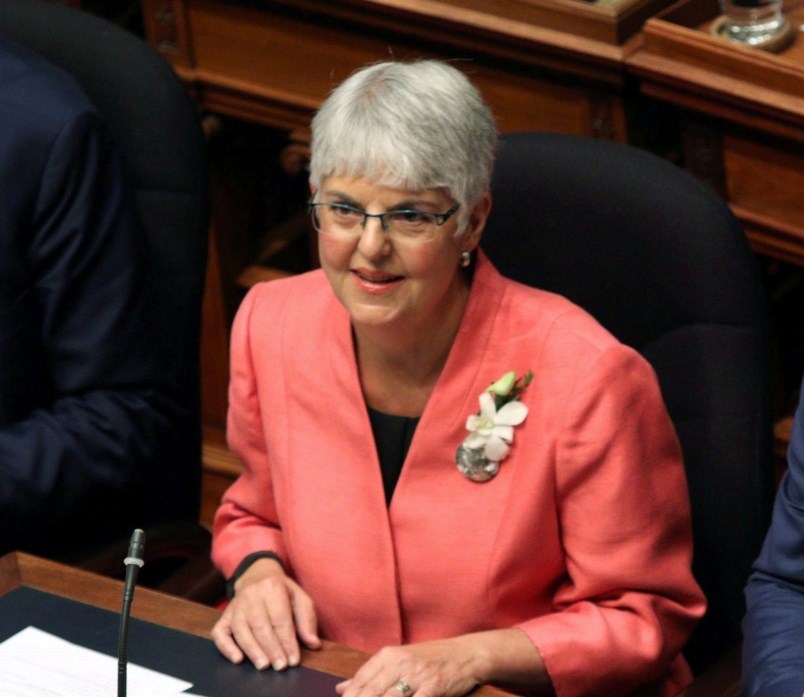B.C.’s finance minister said detractors of the government’s speculation tax exemption are “playing politics” in advance of Nanaimo’s provincial byelection. Winning the byelection is crucial for the NDP minority government’s hold on power.
“We’re in the middle of a byelection, I think a bit of politics is going on right now,” said Carole James, in response to the criticism that followed the government’s announcement Tuesday that homeowners in urban centres will have to apply for exemptions to avoid paying the speculation tax.
Tony Harris, the B.C. Liberal candidate in the Nanaimo byelection, which is set for Jan. 30, said the exemption “is a botched implementation of an already reckless tax.”
Harris has advocated for cancellation of the speculation tax, which he said is slowing development in Nanaimo and affecting jobs. He said the onus should not be on taxpayers to prove they’re not speculators. “I feel that people are going to end up paying [the tax] that shouldn’t because they either miss it or don’t understand the process. They shouldn’t be downloading all of this onto the good citizens of Nanaimo and the other communities where they have this tax.”
New Democrat Sheila Malcolmson said she’s been out door-knocking and has heard that people are encouraged that the government is introducing another tool to address the housing crisis and issues of affordability.
“If this is able to identify who is taking advantage of the market, those who are speculators, if we can generate results from this, it will be one more way to address the terrible vacancy rates and the terrible increase in the cost of housing in the region,” said Malcolmson, who stepped down as MP for the Nanaimo-Ladysmith riding to run provincially.
The Green Party’s Michele Ney, a retired teacher, Conservative Justin Greenwood, Robin Richardson of the Vancouver Island Party and Bill Walker of the B.C. Libertarian Party are also running to fill the seat, which was left vacant when longtime NDP MLA Leonard Krog resigned in November after he was elected Nanaimo mayor.
The byelection could shift the balance of power in B.C., as the NDP’s minority government is propped up by an alliance with the Green Party. Together, the NDP and Greens have 44 seats. The Liberals have 42.
James said she’s not worried that the timing of the announcement could hurt the NDP’s chances of success in the byelection.
“I’m not at all [worried]. In fact I was in Nanaimo last weekend, spending time knocking on doors, talking to people with Sheila Malcolmson and the issues that I heard from people were the issues of affordability,” James said. “It’s no surprise to me that you’d see the other side play a bit of politics during this time, but I think people recognize and understand the need to address this crisis.”
Malcolmson said she has no issue with the announcement coming out two weeks before the byelection. “I can appreciate the fact that Nanaimo is having a byelection isn’t holding the government back from doing the work that’s needed across the province.”
The speculation tax legislation requires the finance minister to meet annually with mayors to hear their concerns about the tax.
Former Nanaimo mayor Bill McKay met with James in July in an attempt to convince the province to exempt his city from the speculation tax, but to little avail.
Many B.C. municipalities have asked to be removed from the speculation tax area.
In September, the Union of B.C. Municipalities supported a resolution put forward by the District of Oak Bay that called for the speculation tax to be overhauled in a way that allows local governments to collect a levy on vacant properties. The local government would then be required to use those revenues for non-market housing.
The resolution fell on deaf ears in the provincial government and the speculation tax was passed into law last fall.



